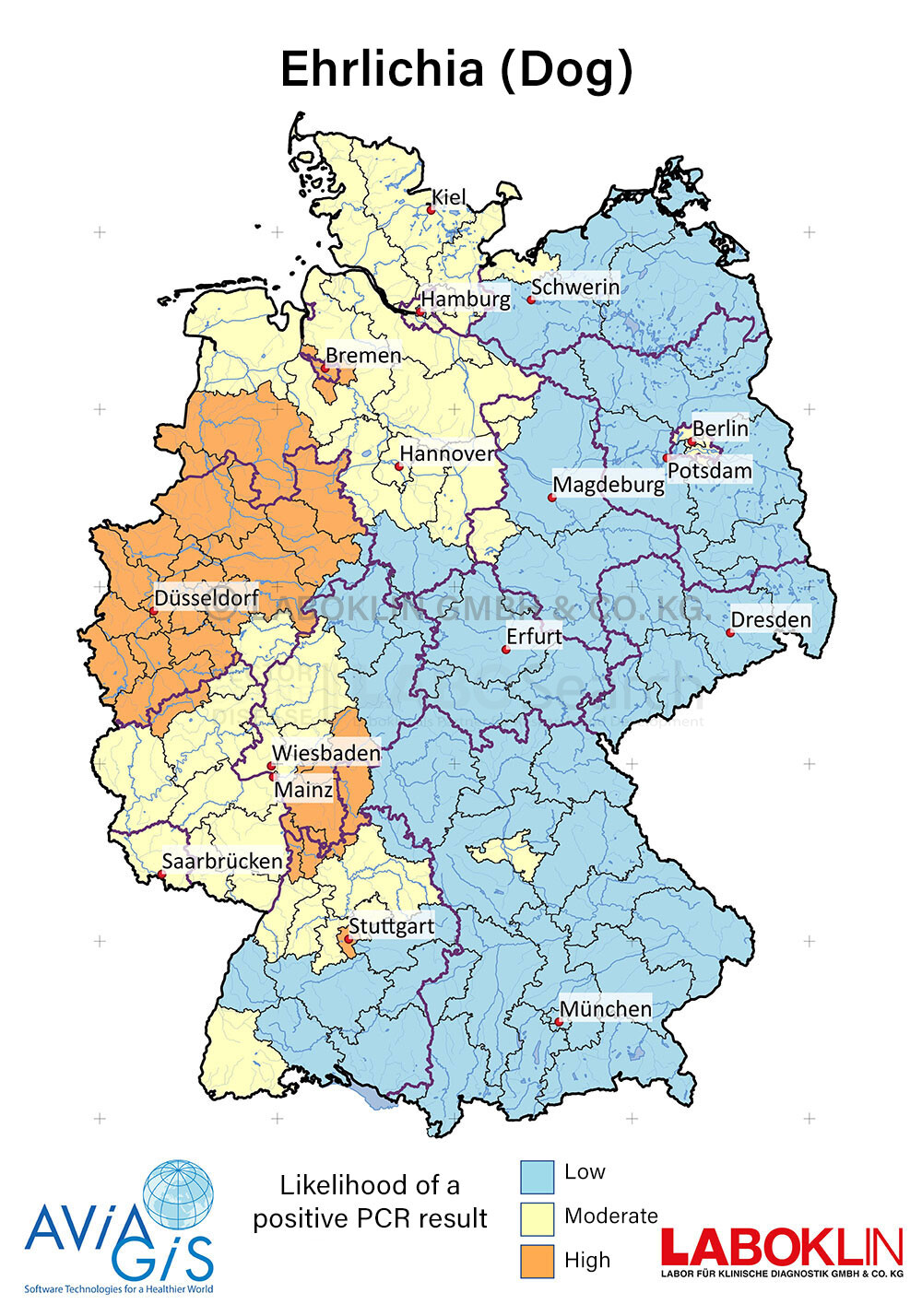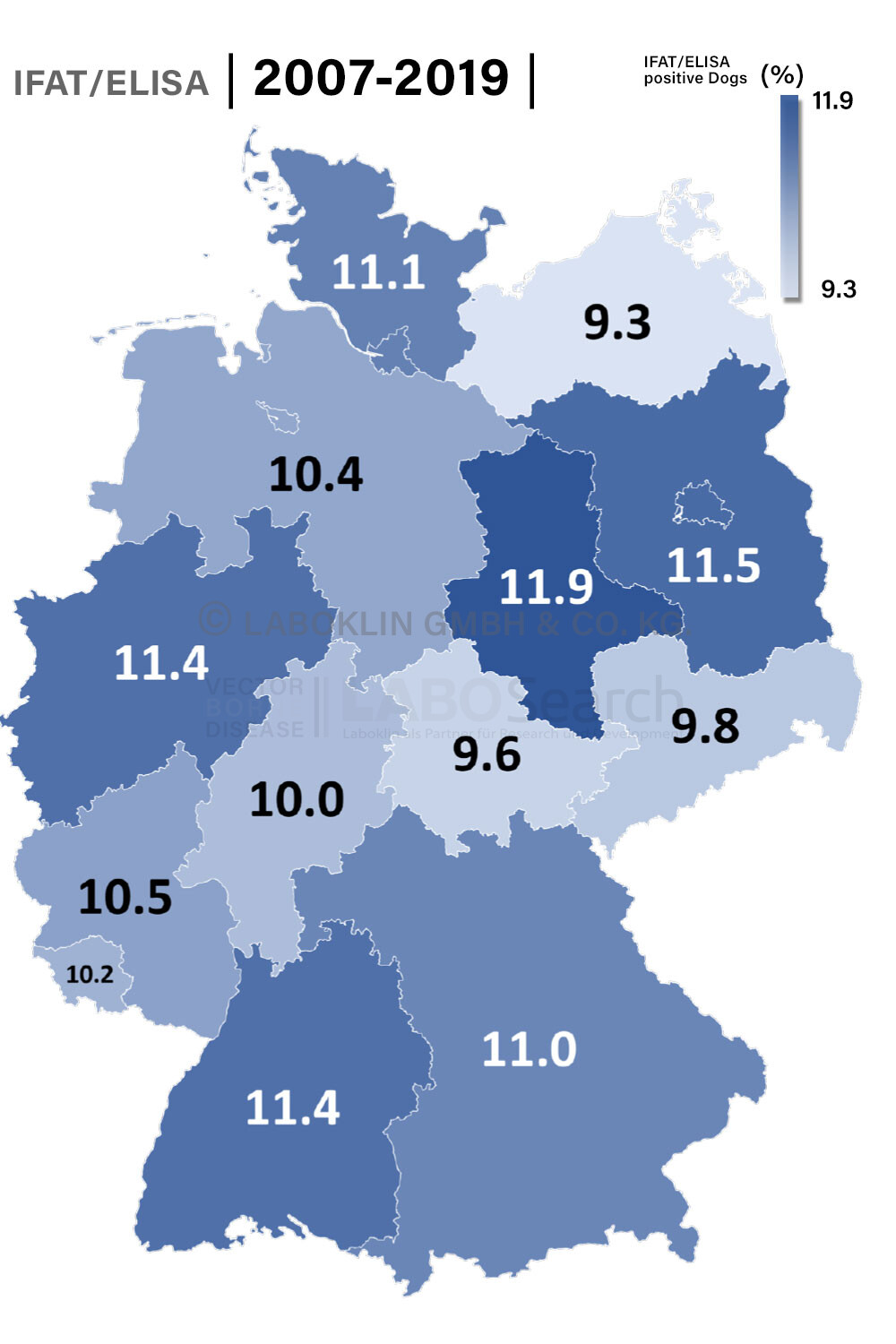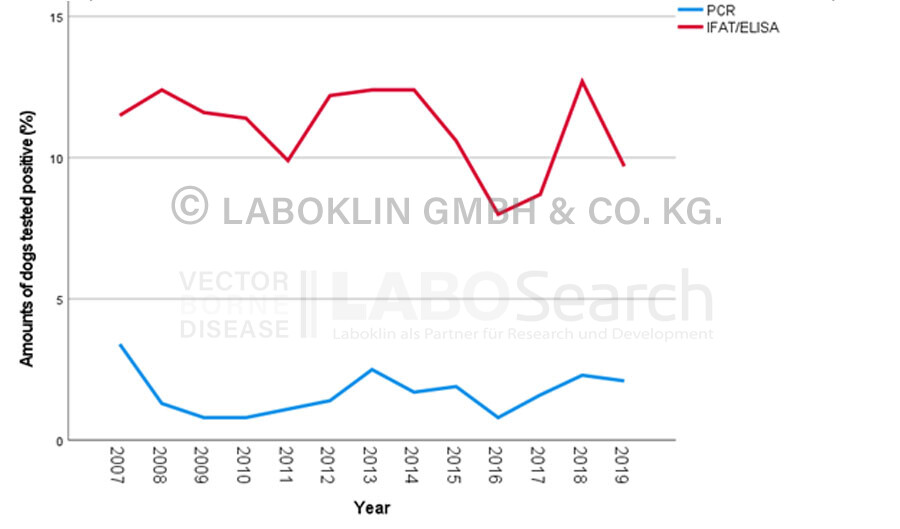- Disease: Ehrlichiosis
- Especially important in dogs
- No zoonotic potential
- Vector: Rhipicephalus sanguineus
- Up to date not endemic in Germany
- Direct detection methods
- PCR (positive result indicative for acute infection)
- Detection of morulae in monocytes (less sensitive compared to PCR and only in acute stage of infection)
- Indirect detection methods (positive result indicative for pathogen contact in the past, paired serum samples necessary for detection of potential infection)
- Antibody-ELISA (enzyme-linked immunosorbent assay)
- IFAT (immunofluorescence antibody test)
- Fever, lymphadenopathy and petechiae as the most prominent clinical signs
- Thrombocytopenia as the most prominent hematological finding, renal failure with proteinuria possible
- Treatment does not eliminate the pathogen
Dog (2007-2023, N = 149,859)
Timeframe | PCR | ELISA/IFAT |
2020-2023 | 1.7% | 13.1% |
2016-2019 | 1.7% | 9.9% |
2012-2015 | 1.9% | 11.9% |
2007-2011 | 1.1% | 11.3% |
Cat (2012-2023, N = 715)
Timeframe | PCR | IFAT/ELISA |
2020-2023 | 0% | 23.7% |
2012-2020 | - | 12.0% |
Up to date, canine ehrlichiosis is thought to be not an endemic disease in Germany. Infections are linked to stays abroad.




